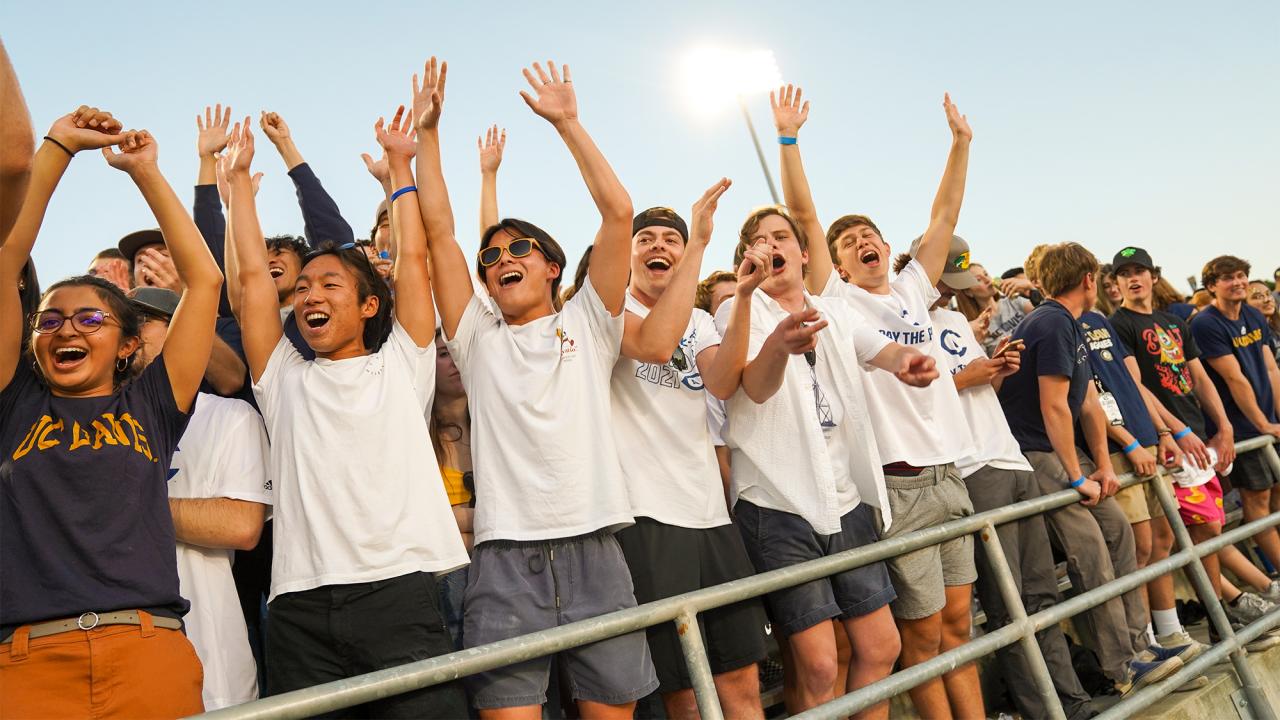Countless Aggies have had their lives enriched through their experiences competing in or attending athletic events. But the impact of athletics extends far past our venues for the Aggie community and city of Davis. Here are some of the ways athletics benefits the larger community.
A pilot program for career development
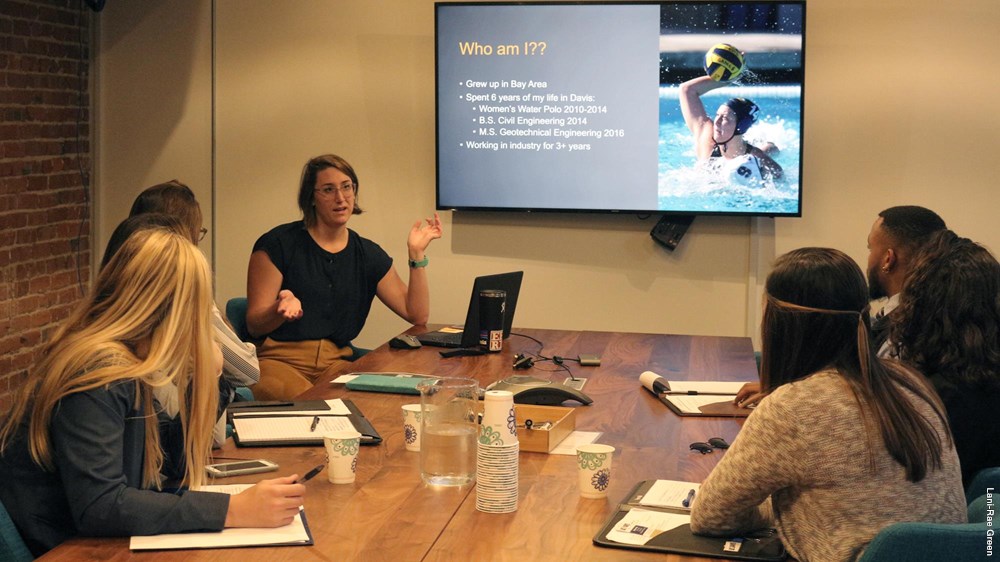
For the past five years, every student athlete has been required to participate in Aggie EVO (short for “Evolution”), a series of professional development activities like networking, creating resumes, preparing for career fairs, informational interviewing with employers and more. That program has provided numerous lessons for Aggie Launch, a Big Idea from the Expect Greater comprehensive fundraising campaign that aims to help students engage in career preparation beginning in their freshman year and graduate in a timely way with a well-developed plan for launching their career or pursing advanced studies.
“Any time we have experience doing things we think we’re doing well and can lend help to campus, that’s what we want to be in the business of doing,” said Michael Lorenzen, associate athletic director for leadership and professional development and the architect of Aggie EVO. “That’s not the normal role of a Division I athletics department and I like that we can be a support incubator for things that impact the broader campus.”
Marcie Kirk Holland, executive director of the Internship and Career Center and one of the champions of the Aggie Launch Big Idea, said many parts of Aggie EVO are things the center has offered for decades, but the mandatory student-athlete program has shown the value of structuring time to make services more accessible.
“That model of embedding career services into a student’s experience is really the model we want to adapt for all UC Davis students,” Kirk Holland said.
She cited a partnership last summer that paid student-athletes and members of some of the university’s student retention centers to take part in experiential learning like internships or research that would have otherwise been unpaid — and therefore out of reach to some students — so they could get a head start on potential career paths.
A ‘front porch’ for the university
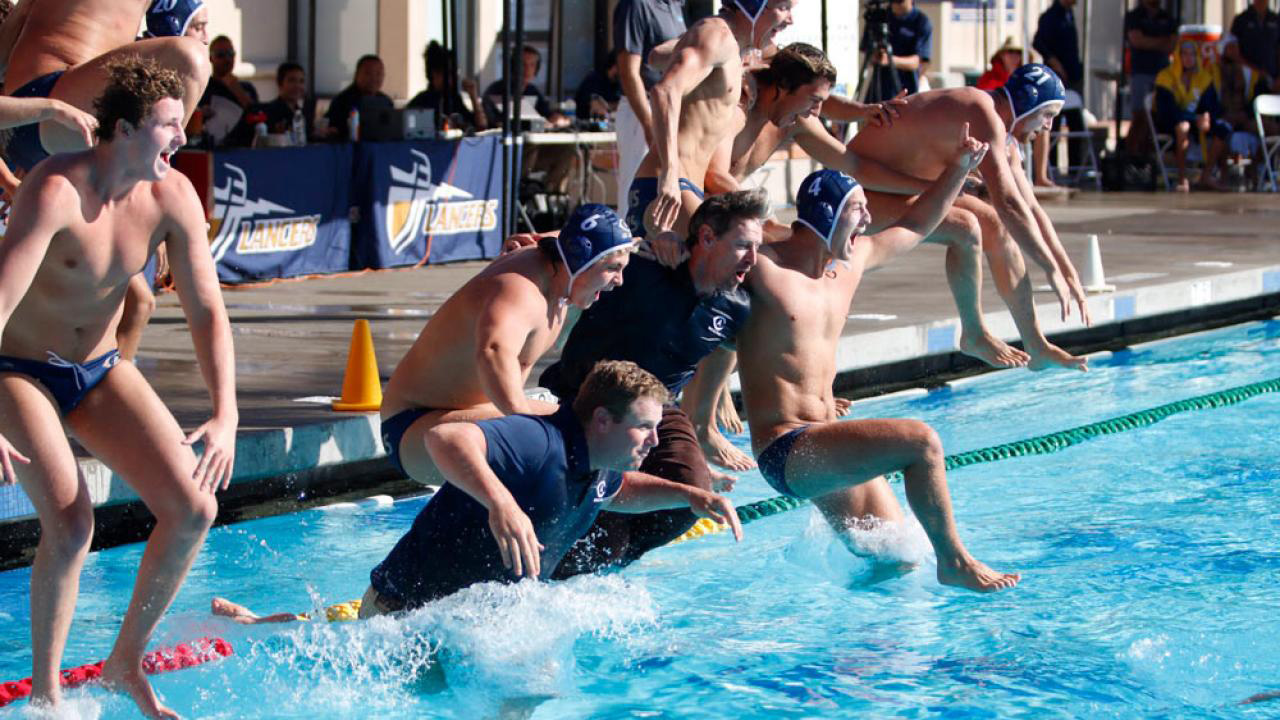
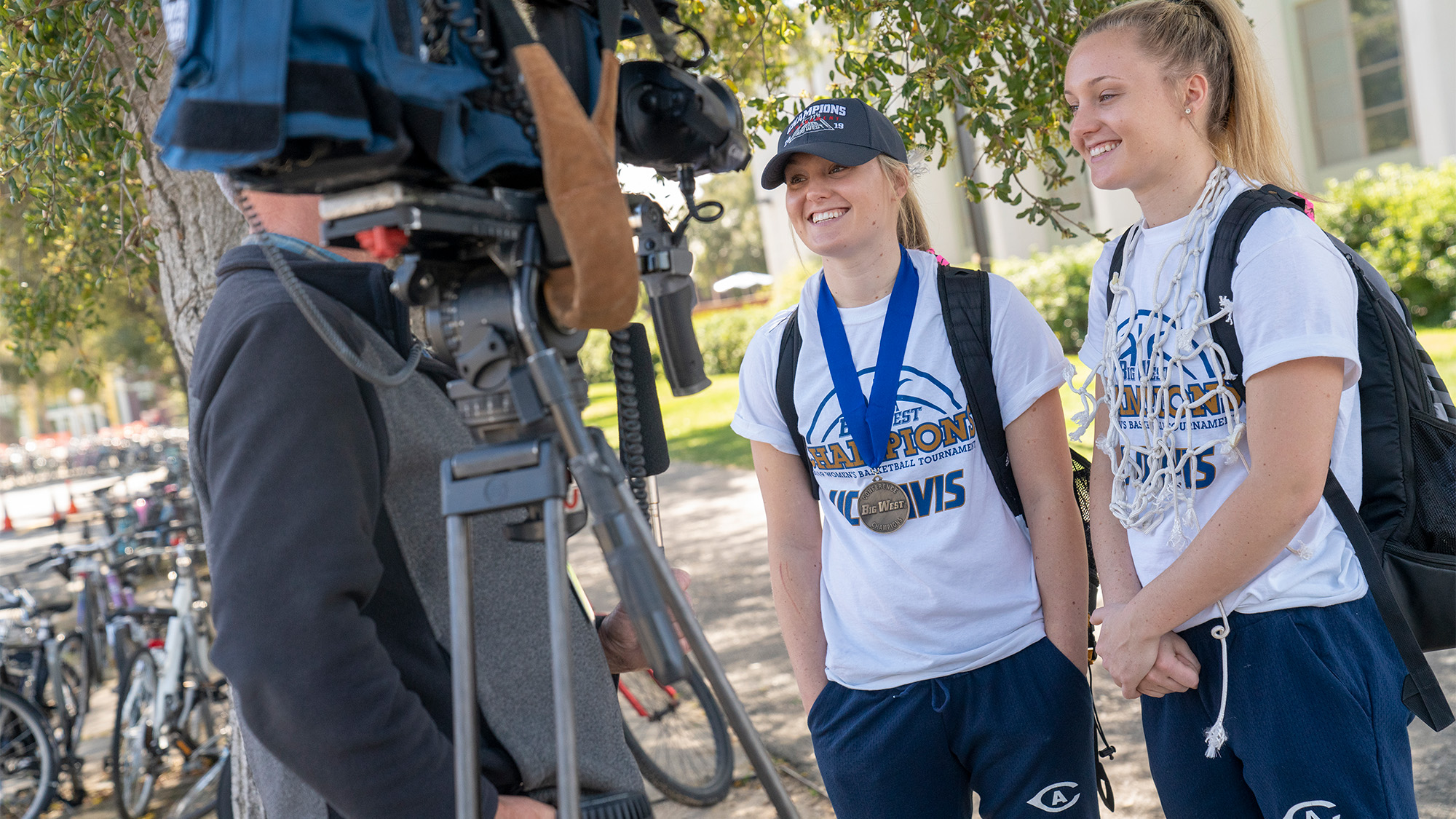
Not everyone — especially on the other side of the country — knows where Davis is. But many of them have heard about our highly ranked academic programs, thanks to student-athletes striking up conversations in airports and coaches talking about UC Davis’ strengths off the field during pre- or post-game interviews.
“So many of our programs are strong that is makes it so easy to talk about,” said Dan Conners, head coach for women’s volleyball. “It starts with academics at UC Davis so we definitely want to put that on the forefront.”
The added attention from sports broadcasts and fans leads many to call athletics “the front porch” of UC Davis — it’s often the first exposure someone has to the university, and even more people hear about UC Davis during national TV broadcasts. More than 65 UC Davis games are streamed nationally on ESPN+ each year to more than 100,000 unique viewers, and that number increases tenfold in years when Aggies make it to the NCAA basketball tournament or the Football Championship Subdivision.
Community service
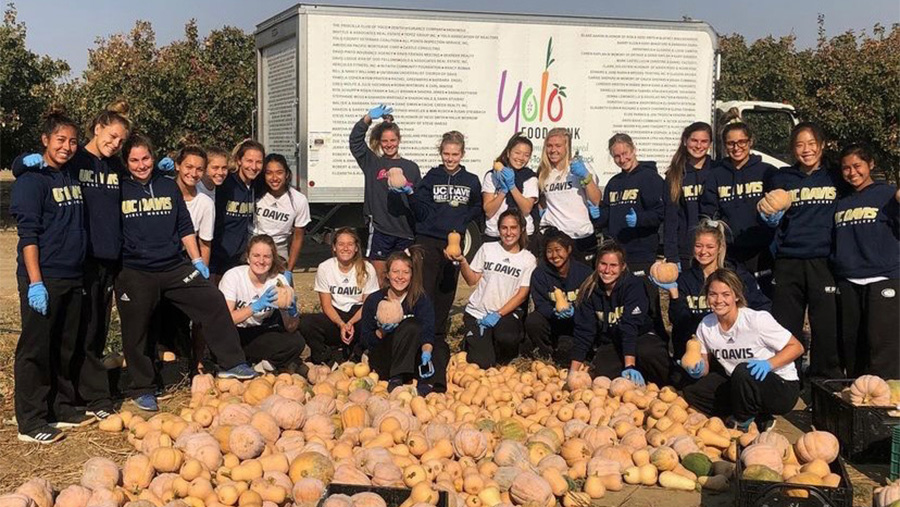
Athletes certainly aren’t the only Aggies who are quick to lend a helping hand, but their numbers can have a powerful impact. The pandemic put a stop to many in-person volunteer activities, but recent examples have included the equestrian team collecting donations for the Yolo County Short Term Emergency Aid Committee, or STEAC, and distributing food, toiletries and other donations to people displaced by wildfires.
Or look to events like Evening of Dreams, a prom for students with special needs. Recent graduate and football player Kooper Richardson ’21 first attended as a high school senior, and by the time he was a junior at UC Davis he was setting such an example that 15 past, present and future UC Davis football players joined him as volunteer dates for the 2019 event.
“It is vital to have athletes and student leaders representing this evening,” said Colleen Short, a family liaison and guest coordinator. “We can't do it without them. They are the hands and feet of Evening of Dreams.”
Keeping alumni connected
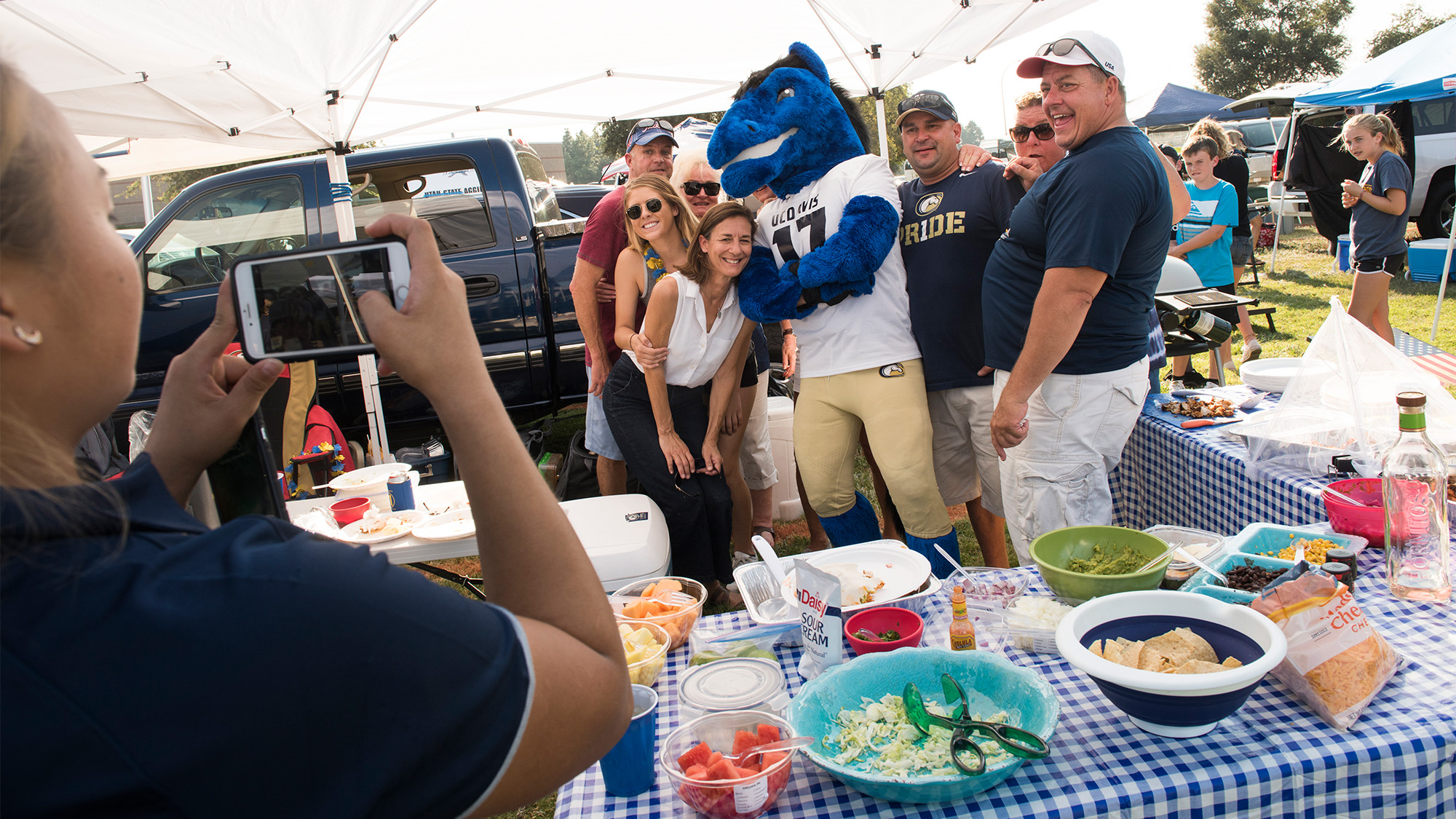
Cheering on student athletes can be a way for alumni to show their support for the university as a whole, said Dana Allen, executive director of the Cal Aggie Alumni Association.
“Alumni always want to see their alma mater succeed,” she said. “There's a connection to teams, even if an alumnus did not play a sport themselves, because the athletes are representing UC Davis when they compete.”
She said alumni have shown great support of athletics in recent years, including completely selling out the first offering of tickets to this year’s homecoming game. When those alumni visit campus for a game, they also patronize their favorite businesses downtown, Allen said. In addition, it can be a way for alumni living outside Davis to gather, as they did last season at a football game in Flagstaff, Arizona.
“I think they participate to show their support of the university, overall,” Allen said. “They've had great experiences at, and success from, UC Davis, so attending an athletics-related event is a way to acknowledge that.”
Creating community ties
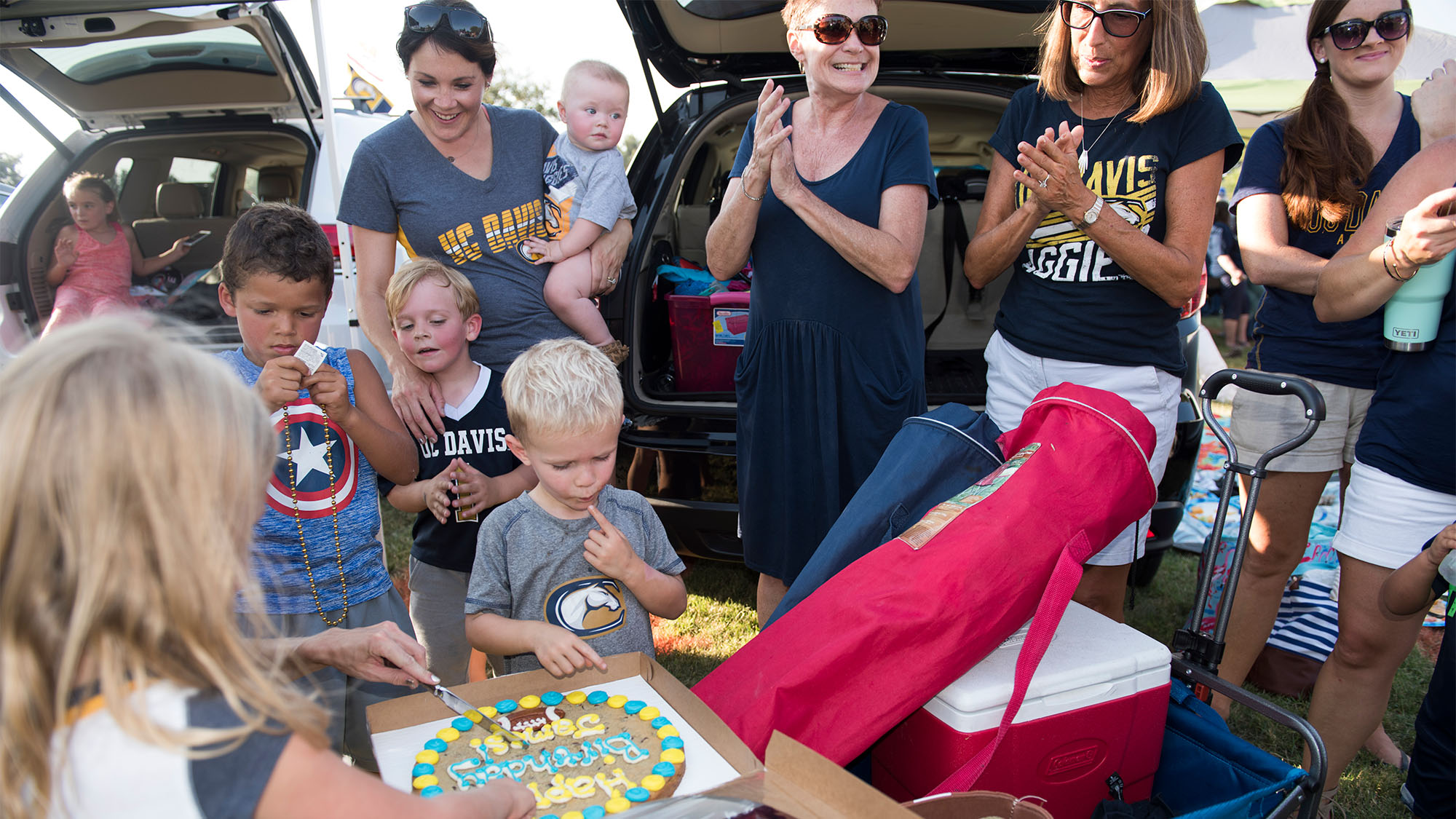
Athletics “knits the town and the campus together” under a common purpose, a sportswriter who has covered the university for 50 years said.
Bob Dunning, a columnist who has worked for The Davis Enterprise since 1969, said athletics events are the only thing in Davis that will reliably draw thousands of people week after week and unite them for a common cause.
“There’s no other event in town that’s going to draw like that, he said. “And it’s not because the athletes always win … They’re rooting for them because it’s part of being a Davisite — being in this town you relate to the university.”
He said athletics are more than just games played by athletes, who he described as “standout citizens” who are deeply involved in the community. They also bring people to local restaurants and hotels, and connect people who may not even be sports fans.
“I know lots of people who probably don’t know a touchdown from a first down who wouldn’t miss an Aggie football game,” he said.
